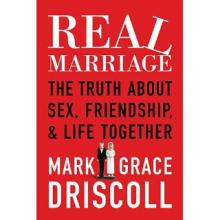biblical scholarship
Some books utterly disrupt you. I was doing research for an essay on St. Augustine and slavery when I first came across humanities scholar Jennifer Glancy’s Slavery in Early Christianity. Reading this book made me realize that everything I thought I knew about the history of Christianity and slavery was wrong.
On my recent 4,100-mile pilgrimage across the U.S., I occasionally used my radio’s “seek” function to find stations.
I often stopped on a “Christian radio” station, sometimes a national network such as American Family Radio, sometimes a local effort featuring preachers from area churches, always conservative.
I did so because I enjoy gospel music and I was curious what the radio preachers were saying.
They tended to be excellent speakers and well-prepared. But their message seemed frozen in time, as if nothing had changed in America since the 1950s except for the identities of enemies who are allegedly “attacking Christians,” "attacking Christian values” and “attacking the American way of life.”
This siege mentality seemed basic to every preacher I heard. I suppose it’s one way to rally the troops. Get them fearful, angry, and suspicious.
It is a tradition in American journalism as predictable as Easter and Christmas itself: a cover story purporting to reveal the true story behind the Bible we thought we knew. Newsweek — now in its digital-only form — offers the latest entry in this genre with “The Bible: So Misunderstood It’s a Sin,” written by Vanity Fair contributing editor Kurt Eichenwald.
Eichenwald seeks to demonstrate that the Bible is “loaded with contradictions and translation errors and wasn’t written by witnesses and includes words added by unknown scribes to inject Church orthodoxy.” Eichenwald insists his article is not an attack on the Bible or Christianity. Rather, Eichenwald wants to rescue the message of Jesus from “God’s frauds,” those manipulative fundamentalists who don’t read or understand their Bibles but abusively twist it in order to create misery for others.
Even with a generous 8,487 words, Eichenwald reveals he is out of his depth for this subject matter. Though he doggedly advances his predetermined thesis from a mishmash of angles, experts quickly showed online that Eichenwald has not really done his historical homework or read his Bible carefully.
HE SAID: David Vanderveen
Real marriages develop from two people who are committed to making them work. The specifics of how two real people make one real marriage work is largely irrelevant given the freedom we have in Christ. Marriage is supposed to be a symbol of our relationship with God on earth.
We don’t need more multiple choice tests and true-and-false quizzes with black-and-white answers to bring heaven to earth; we need to put the love of the other first — with God at the core — to make our marriages work.
SHE SAID: Sarah Vanderveen
Real Marriage is a poorly written, poorly researched book by a well-meaning pastor who I believe is struggling with his own sexuality and sense of self-worth. I don’t know how else to explain his weirdly inappropriate fixation on masculinity and specific sexual practices, and his failure to address the complexity of human sexuality and relationships.
It feels to me like he doesn’t really want to understand the whole person, rather he just wants to cut straight to the salacious tidbits. I realize that’s how you sell a lot of books, but still. I get the distinct impression that Driscoll is not a man at peace.



